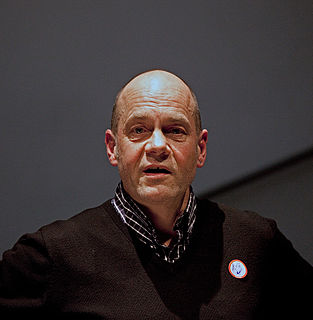A Quote by Caitlin Moran
All the things that are taboo are the things that are not normal, and all the things that are not normal are the things that are exclusively about physically being a woman.
Quote Topics
Related Quotes
I'm not a racist. It's really case by case; it's not ethnicity specific. It's just the way I react to things that are different. I think that's normal. Everyone's nervous when they're confronted with things that they don't understand or are different. That's a normal human reaction. It doesn't become racist 'til you say things like, 'Oh, there's a lot of them.'
Even if we're not doing anything wrong, there are certain things we want to do that we don't think can withstand the scrutinizing eye of other people. And those are often the most important things that we do. The things we do when other people are watching are things that are conformist, obedient, normal, and unnotable.
ACT psychology is a psychology of the normal. A lot of the psychologies that are out there are built on the psychology of the abnormal. We have all these syndromal boxes that we can put people in and so forth. The actual evidence on syndromes is not very good. There's no specific biological marker for any of the things that you see talked about in the media. Even things like schizophrenia - there's no specific and sensitive biological markers for these things. There may be some abnormal processes involved, but vastly more of human suffering comes from normal processes that run away from us.
If you want your children to relate to the culture you live in, if you want to train them outside of the general system, you have to tell your children that ordinary children tend to say things like 'I can run faster than you; I can draw better than you; I know things you don't know'. You have to tell them what normal children are like. Normal children are messed up and you have to tell them about that. But if you instruct your child in high correlation with the physical world, they won't be able to relate with normal children. Normal means mixed up as I use the word.

































